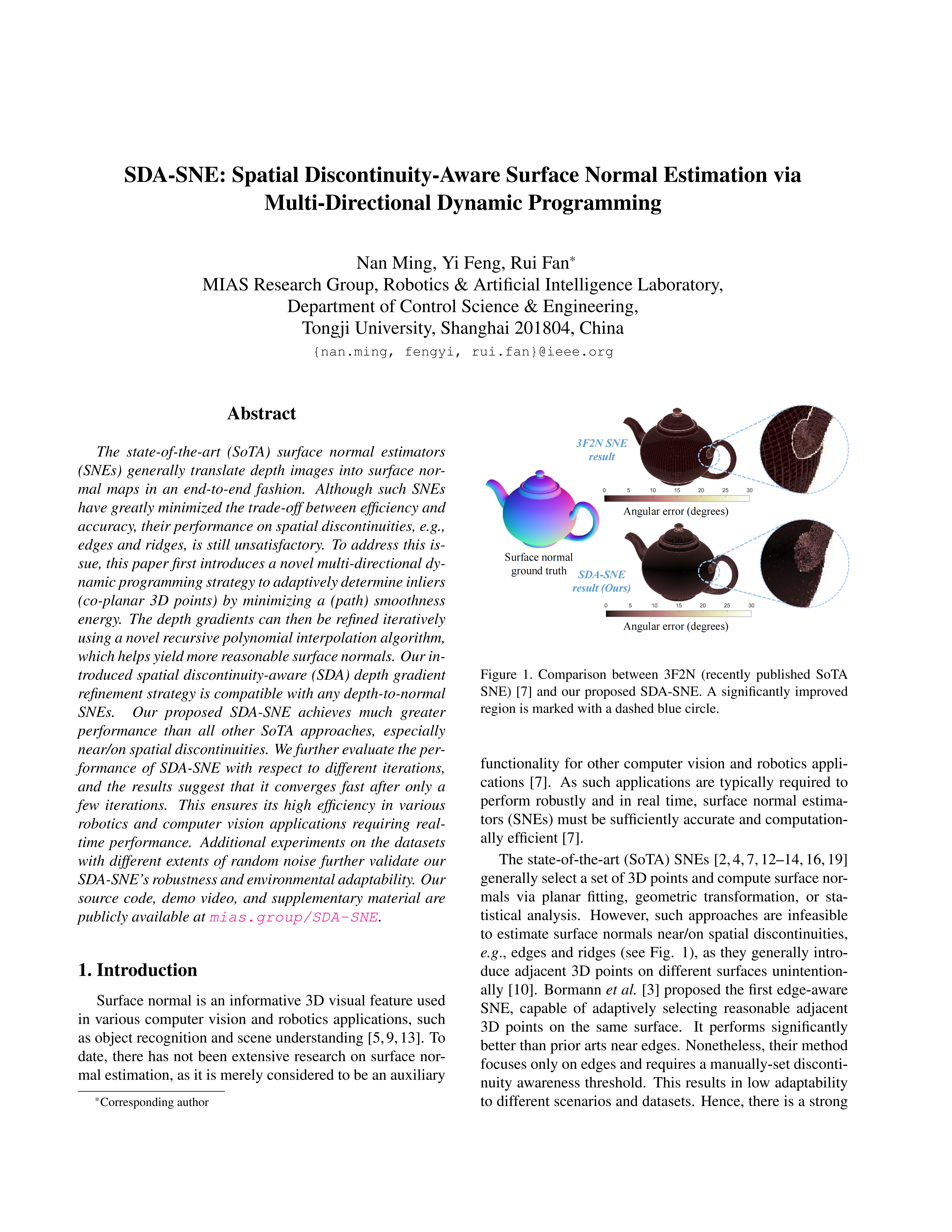|
The state-of-the-art (SoTA) surface normal estimators (SNEs) generally translate depth images into surface
normal maps in an end-to-end fashion. Although such SNEs have greatly minimized the trade-off between
efficiency and accuracy, their performance on spatial discontinuities, e.g., edges and ridges, is
still unsatisfactory. To address this issue, this paper first introduces a novel multi-directional dynamic
programming strategy to adaptively determine inliers (co-planar 3D points) by minimizing a (path) smoothness
energy. The depth gradients can then be refined iteratively using a novel recursive polynomial interpolation
algorithm, which helps yield more reasonable surface normals. Our introduced spatial discontinuity-aware
(SDA) depth gradient refinement strategy is compatible with any depth-to-normal SNEs. Our proposed SDA-SNE
achieves much greater performance than all other SoTA approaches, especially near/on spatial
discontinuities. We further evaluate the performance of SDA-SNE with respect to different iterations, and
the results suggest that it converges fast after only a few iterations. This ensures its high efficiency in
various robotics and computer vision applications requiring real-time performance. Additional experiments on
the datasets with different extents of random noise further validate our SDA-SNE's robustness and
environmental adaptability. Our source code, demo video, and supplementary material are publicly available
at https://mias.group/SDA-SNE/.
|



